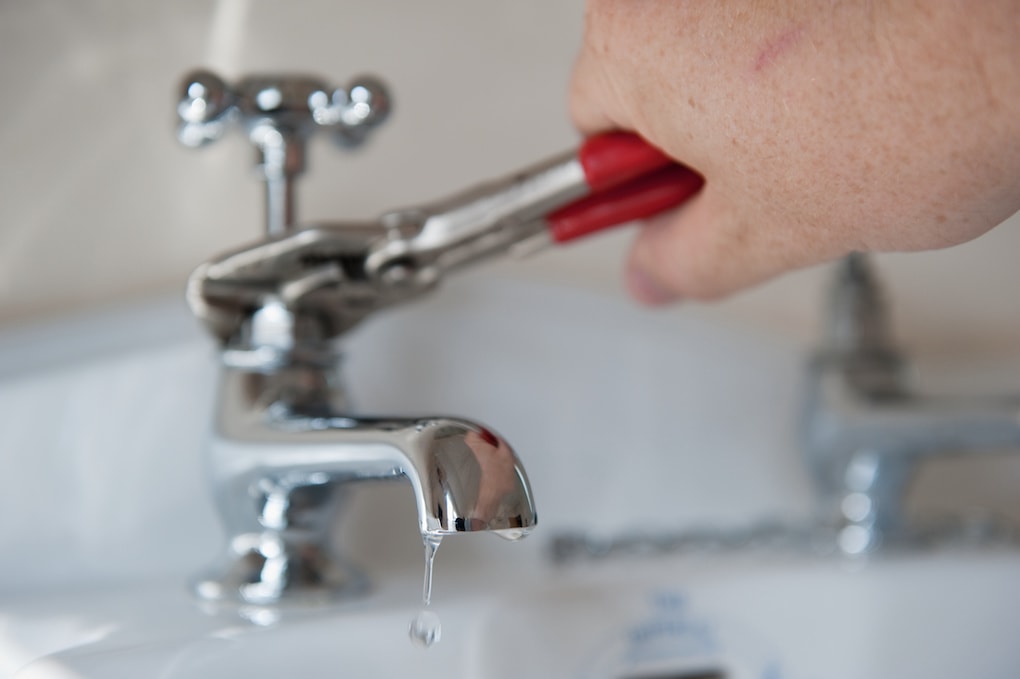Quick Remedies for Resolving Low Water Pressure in Your Home
Quick Remedies for Resolving Low Water Pressure in Your Home
Blog Article
How do you really feel about Dealing with Low Water Pressure in Your Home?

Low tide pressure in your home can be an irritating issue, influencing every little thing from showering to washing recipes. If you're experiencing weak water flow, there are numerous possible reasons and solutions to check out. In this overview, we'll review usual reasons for low water stress and sensible actions to resolve the issue properly.
Intro to Low Water Stress
Low tide stress takes place when the flow of water from your taps, showers, and various other components is weak than common. This can make day-to-day tasks more challenging and less reliable. Recognizing the causes of low tide stress is crucial to finding the ideal remedy.
Typical Root Causes Of Low Water Pressure
Faulty Pressure Regulatory Authorities
Stress regulatory authorities are responsible for maintaining regular water pressure in your home. If they malfunction, it can result in low tide stress or unequal circulation throughout the house.
Community Supply Of Water Issues
In some cases, the problem exists outside your home. Metropolitan water system issues, such as main line leakages or upkeep work, can briefly lower water stress in your location.
Pipe Obstructions
Over time, pipelines can become blocked with mineral deposits, sediment, or debris, restricting the flow of water. This is an usual problem in older homes with galvanized steel pipelines.
Deterioration
Rust within pipes can lead to leaks and minimized water stress. Corrosion accumulation can tighten water flow, especially in aging plumbing systems.
Just How to Identify Low Water Stress
Checking Pipelines
Evaluate visible pipelines for indications of leakages, corrosion, or obstructions. Focus on any type of uncommon noises, such as knocking or rattling pipes, which could suggest issues within the plumbing system.
Consulting with a Plumber
If you're not able to identify the root cause of low water stress, think about hiring a specialist plumber to conduct an extensive evaluation. They can recognize underlying problems and suggest suitable services.
Examining Faucets and Fixtures
Start by evaluating the water pressure at various taps and components throughout your home. If the concern is separated to certain locations, it may indicate local issues.
Do It Yourself Solutions to Take Care Of Low Water Stress
Flushing Hot Water Heater
Debris build-up in the water heater can restrict circulation and reduce effectiveness. Purging the storage tank occasionally helps remove debris and maintain optimum performance.
Checking Pressure Regulator
Make sure that the stress regulatory authority is operating appropriately. Readjusting or replacing the regulatory authority can aid bring back correct water pressure throughout your home.
Cleansing Aerators and Showerheads
Natural resources can accumulate in aerators and showerheads, reducing water circulation. Eliminate and clean up these elements on a regular basis to enhance water pressure.
Clearing Up Clogs in Water Lines
For minor obstructions, try utilizing a plumbing snake or chemical drainpipe cleaner to clear obstructions in pipelines. Be cautious when utilizing chemicals and follow safety and security guidelines.
When to Call a Professional Plumber
If do it yourself efforts fall short to solve the concern or if you think considerable plumbing problems, it's best to seek help from an accredited plumber. They have the competence and tools to deal with complex concerns safely and efficiently.
Safety Nets to Preserve Water Stress
Mounting a Stress Booster
Consider setting up a pressure booster pump to boost water pressure in locations with continually low flow. This can be especially beneficial for multi-story homes or properties with high-demand fixtures.
Tracking Water Usage
Bear in mind water use practices and prevent ill-using the plumbing system. Straightforward changes, such as shocking showers and washing tons, can aid maintain adequate water pressure.
Regular Upkeep
Arrange routine upkeep for your plumbing system to avoid concerns such as deterioration, leakages, and blockages. Addressing small issues early can help stay clear of more considerable repair services in the future.
Final thought
Handling low water pressure can be frustrating, but identifying the underlying causes and carrying out ideal solutions can recover optimum flow throughout your home. Whether it's cleaning up aerators, inspecting pipes, or consulting with a plumber, taking aggressive actions can ensure a consistent supply of water for your everyday needs.
FOUR WAYS TO FIX LOW WATER PRESSURE NOW
Turning on a shower or faucet only to find the water comes out in a sad, slow drizzle is never a good feeling. How exactly are you supposed to wash a pan or take a quick shower when it takes 10 minutes just to rinse off a little soap? The good news is that when your water pressure is bad, there's always a cause: typically one that can be easily fixed. Here are some of the most common causes of low pressure and what you can do to fix the issue:
DEBRIS AND MINERAL DEPOSIT BUILDUPS
If you notice low water pressure from just one or two of the fixtures in your house, the problem likely has to do with debris buildup. Water is full of minerals and other debris, all of which can accumulate in your pipes and on your fixtures. This can cause a blockage that affects how much water flows through. To fix this, try filling a small plastic bag with white vinegar, and use a rubber band to hang it around your showerhead or faucet. Let the head of the fixture soak for a few hours, and the vinegar should loosen the deposits.
WATER LEAKS
Leaks are another common cause of low water pressure. If water is flowing out of your plumbing through a hole or crack before it can reach your fixture, the pressure coming out of the faucet or showerhead will be lower. A plumbing professional is your best bet for finding and repairing a leak in your water supply pipes.
Leaks are another common cause of low water pressure. If water is flowing out of your plumbing through a hole or crack before it can reach your fixture, the pressure coming out of the faucet or showerhead will be lower. A plumbing professional is your best bet for finding and repairing a leak in your water supply pipes.
A VALVE ISSUE
If you have low water pressure throughout your home, check your main shut-off valve to make sure it's completely open. You may also want to see if there's a pressure-reducing valve installed. If there is, have a plumber help you adjust the settings to get the pressure you're looking for.
OTHERS USING WATER
Believe it or not, your low water pressure could be caused by your neighbors. If you notice low pressure at certain times of day, it may be because you and the people living next to you have similar schedules - when everyone is showering at the same time, the pressure will be lower in every home. Low pressure throughout the neighborhood may also be caused by an issue with your municipal water supply. If that's the case, call the supplier to see if they're working on the issue.
https://www.rotorooter.com/blog/water-leaking/low-water-pressure-fixes/

I stumbled upon that write up on Dealing with Low Water Pressure in Your Home while doing a search on the internet. Enjoyed our piece? Please quickly share it. Let someone else check it out. We cherish reading our article about 10 Reasons for Low Water Pressure in Your House.
Call Report this page